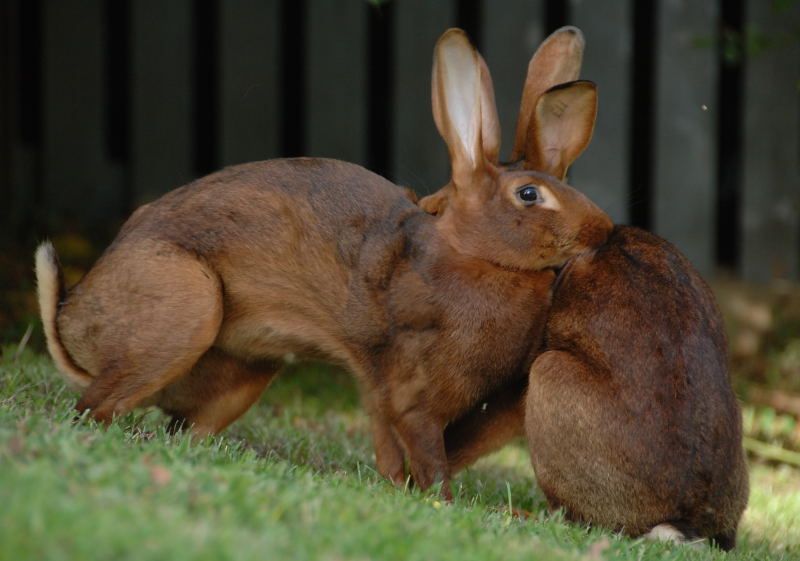BC Belgians":117rb4ao said:
If that happens, what then? Trip to the Vet for IV glucose? Dose her with "Ketamalt"? I guess oral propylene glycol wouldn't be appropriate for rabbits, right?
Also from here:
http://www.merckmanuals.com/vet/exotic_ ... bbits.html
Ketosis
(Pregnancy toxemia)
Ketosis is a rare disorder that may result in death of does at or 1–2 days before kindling. The disease is more common in first-litter does. Predisposing factors include obesity and lack of exercise. The probable cause is starvation. For some reason not well understood, there is anorexia. Other signs are dullness of eyes, sluggishness, respiratory distress, prostration, and death. The most significant lesions are fatty liver and kidneys. The body mobilizes fat and transports it to the liver to be broken down for energy, thus the fatty liver. Diagnosis depends on clinical signs and necropsy lesions. Injection of fluids that contain glucose may be helpful in correcting the disease. Breeding junior does early, before they become too fat, is also helpful. Hairballs in the stomach are often a factor in ketosis.
Speaking only from the perspective of experience. I do not believe this condition is rare anymore. It may have been at the time it was written, or at the time that whatever material was referenced was written.
I find the reference to hairballs is particularly interesting, because it's frequently mentioned on here that hairballs may be result of a slowed GI tract instead of the cause.
I have dealt with a lot of overweight does, and I actually feel my pellets are fattier than my oats are. The purina pellets here are REALLY fatty.
If I just keep them eating what they need, they never seem to get to the point of metabolizing too much fat.
Pellets are almost always the first things my rabbits reject when they aren't feeling well. My theory is that pellet rejection (and feed refusal in general) puts more does into ketosis than most people realize.
If they refuse to eat pellets I give oats, boss, hay, maybe some pumpkin seeds, herbs and greens and a mineral lick. So far, with good results. If they still refuse, dropper feeding things like mashed pumpkin blended with oats has worked for me. Most breeders have their own routine to get a finicky rabbit to eat or a slowed GI tract restarted.
I've also had at least one one non-pregnant doe go into it ketosis from feed refusal caused by the stress of repeated moving and a feed switch. Her liver was on the left.

Her body cavity was stuffed with fat, despite her feeling thin from dehydration. I feel that I still could have saved her, but I didn't really want to breed that kind of sensitivity into my lines, or deal with a doe that obese.
Back to the original question, if I'm truly worried about ketosis in an anorexic pregnant doe, my own favorite way to supplement glucose (only when I feel it's absolutely necessary) is to add a tiny bit of light corn syrup to a rabbit's water. Others use molasses mixed with oats. One person mentioned a glucose product sold for larger livestock. There are more ways, probably a different method for each breeder.... Haha, just keep in mind a little goes a long way when it comes to bunnies. Supplementing too much glucose, or at the wrong time, could lead to a bacterial imbalance in the GI tract. Potentially causing more harm than good.
Or...You could take your doe to the vet instead, and do whatever they say. The results would really depend of how experienced your vet is.






